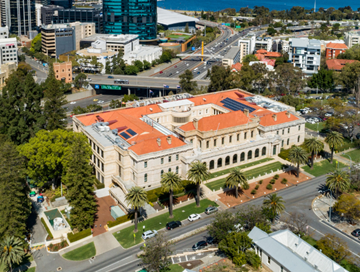Which is more efficient for your home Gas vs electricity
17 August 2020"Whether you’re renovating or building, there are ways to make your home more energy efficient, which can help you save money."

Ask anyone who has renovated an established home or built a new one, it can be one of the most stressful times in your life. It’s time intensive and expensive.
Whether you’re renovating or building, there are ways to make your home more energy efficient, which can help you save money.
Heating (and cooling) your home uses more energy than anything else.
Heating
There are advantages with heating with natural gas, rather than electricity.
- Cost effective
Natural gas is far less expensive than electricity. The initial cost involved in buying a gas heater may be higher, but the lower running costs will save you money in the long term.
- Instant heat
One of the greatest benefits of natural gas is its potential for instant heat. As soon as a heater or heating system is turned on, the ignitor is lit and heat begins to flow into your home.
- Flexible heating
Newer ducted heating models allow you to compartmentalise your home into zones so that you can enjoy the convenience of central heating without having to heat every room in your house at once, which saves both energy and money.
- Cleaner burning
Unlike wood or coal fires, natural gas doesn’t leave behind smoke, ash or odours.
- Low carbon emissions
Compared to coal or oil, natural gas produces very low carbon emissions - around 70 per cent less than other fossil fuels.
- Reliable supply
Unlike electricity, natural gas supply is unaffected by the weather. Underground gas pipelines mean that storms won’t disrupt the supply, so your home will stay toasty warm, no matter what’s happening outside.
Cooking
One question that is often asked is whether gas or electric ovens are cheaper. The answer has two parts.
Purchase and installation costs
Gas ovens tend to be a bit pricier than electric ovens to buy and, if you’re not already connected to a natural gas supply, you’ll need to connect to the gas network. It’s also wise to pay for a qualified gas fitter to install your gas oven, to ensure it’s connected
safely.
Sometimes manufacturers offer rebates to those installing gas appliances in an existing property, which will immediately recover some of your costs.
Ongoing costs
- Running costs
Gas and electric ovens use roughly the same amount of energy each year, but the higher price of electricity makes electric ovens more expensive to run. On average, electric ovens can cost up to five times more to run than gas.
- Maintenance, repair and replacement parts
Electric ovens often need more maintenance, repair and replacement of parts – all of which adds to the running costs. The coils tend to suffer from wear over time and power outages can damage parts. Because of this, gas ovens usually have a longer life span than electric models.
- Heat wastage
Both gas and electric ovens are thermostatically controlled, meaning they power down to conserve energy once the desired temperature is reached and continue this cycle throughout the cooking process.
However, when in use electric cooktops tend to produce more waste heat than gas cooktops, as the surface continues to stay hot after it is turned off.
- Carbon emissions
Appliances powered by natural gas can help a household reduce its carbon footprint by over 40 per cent in comparison with one solely using electric appliances.
To help you save, we’re putting some of the best energy saving tips we’ve learnt over the past 25 years on our website, visit alintaenergy.com.au.



767bbbc6-4993-4f16-8933-e9b2baaac7a0.tmb-rcarousel.jpg?sfvrsn=8cf14270_1)





